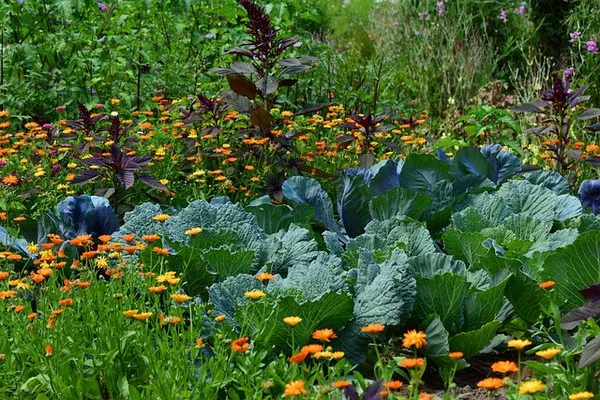Flowers have long held a special place in human culture, transcending their aesthetic beauty to convey deep emotions and sentiments. Among the multitude of emotions that flowers can symbolize, friendship stands out as one of the most cherished and profound. In this article, we will delve into the rich symbolism of flowers in relation to friendship, exploring their historical significance, cultural variations, and the enduring importance of floral gestures in celebrating and nurturing our friendships.
Historical Significance
The association between flowers and friendship dates back centuries, rooted in the history of human civilization. In ancient times, the giving of flowers was a symbolic gesture of goodwill and camaraderie. The Egyptians, for example, adorned their tombs with floral wreaths as a sign of eternal friendship and devotion. Similarly, the Greeks and Romans exchanged floral bouquets as tokens of affection and trust.
One of the most enduring symbols of friendship from the ancient world is the yellow rose. The yellow rose is believed to have been associated with the sun, radiating warmth and happiness, qualities closely linked to friendship. This tradition has persisted throughout history, making the yellow rose a timeless emblem of friendship.
Cultural Variations
The symbolism of friendship through flowers transcends geographical boundaries and takes on unique variations across different cultures. Each culture has its own set of flowers that are associated with friendship, conveying a diverse range of emotions and sentiments.
China: In Chinese culture, the peony is a symbol of friendship and is often referred to as the “king of flowers.” The peony represents prosperity, happiness, and lasting friendships. It is frequently exchanged among friends as a gesture of goodwill.
Japan: Cherry blossoms, or sakura, hold deep cultural significance in Japan. They symbolize the transient nature of life and the beauty of impermanence. When given as gifts, cherry blossoms symbolize the fleeting, yet cherished, nature of friendship.
India: Marigolds are popular flowers in India and are often associated with friendship and strong bonds. They are used in various rituals and celebrations to symbolize the deep connection between friends.
Western Culture: In Western cultures, daisies are often linked to friendship. Their cheerful appearance and simplicity make them a fitting representation of the uncomplicated and genuine nature of friendship.
Middle East: In Middle Eastern cultures, the red tulip is a symbol of friendship. It signifies strong bonds and is often exchanged as a token of appreciation among friends.
The Language of Flowers
The Victorian era is renowned for its elaborate and intricate “language of flowers,” also known as floriography. During this period, flowers were used to convey complex emotions, including those associated with friendship. People exchanged carefully crafted floral arrangements to send secret messages, making it an art form in its own right.
Certain flowers carried specific meanings related to friendship in this floral lexicon:
Iris: The iris symbolizes friendship and trust, making it a popular choice in Victorian bouquets exchanged between close friends.
Fern: Ferns were used to convey sincerity in friendship. A gift of ferns indicated a deep and heartfelt bond between friends.
Hyacinth: Hyacinths were associated with playful camaraderie, making them an ideal choice for friends who shared a sense of fun and mischief.
Forget-Me-Not: As the name suggests, forget-me-nots represent lasting friendship and the promise to always remember and cherish the bond between friends.
The Modern Significance of Friendship Flowers
In today’s fast-paced world, where digital communication often takes precedence, the tradition of giving and receiving flowers as tokens of friendship has not lost its significance. If anything, it has evolved to meet the changing needs of contemporary friendships.
Special Occasions: Flowers continue to be a staple for celebrating special occasions such as birthdays, anniversaries, and graduations. The act of giving flowers to a friend on these occasions signifies thoughtfulness and affection.
Apology and Reconciliation: When misunderstandings occur between friends, a carefully chosen bouquet can serve as a heartfelt apology and a symbol of the desire to mend the relationship.
Support and Comfort: In times of grief or hardship, sending sympathy flowers or a comforting arrangement can provide solace and emotional support to a friend in need.
Just Because: One of the most beautiful aspects of friendship is its spontaneity. Sending flowers “just because” is a simple yet powerful way to show appreciation and remind a friend of their importance in your life.
Virtual Friendship: In an era of online friendships and long-distance connections, sending virtual flower arrangements and e-cards has become a way to bridge the physical gap and maintain emotional closeness.
Conclusion
The language of flowers and their symbolism in the context of friendship have a rich history that transcends time and cultural boundaries. Whether through ancient traditions or modern gestures, flowers continue to play a vital role in expressing our feelings of friendship, appreciation, and love.
In a world where the pace of life can sometimes overshadow the importance of nurturing our relationships, the simple act of giving a friend a bouquet of flowers can serve as a powerful reminder of the enduring value of friendship. So, the next time you want to celebrate a friend’s achievements, offer support in times of need, or simply express your gratitude, consider the profound language of flowers as a means to convey the depth of your friendship. After all, in the language of flowers, friendship blooms eternal.


